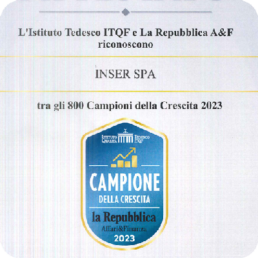Integrating public health care with mutual aid societies and funds: discover the most effective solutions

Inser S.p.A. guides you in choosing among health funds, mutual benefit societies and private insurance companies to effectively integrate public health care. Learn more
Attention to health care has grown exponentially, accelerated by the Covid-19 pandemic. According to the February Ivass report, total healthcare spending in Italy amounted to 171.9 billion euros in 2022, equivalent to 9 percent of GDP. Of this, 75.9 percent is covered by the public sector, while the rest includes private and intermediate spending, the latter managed mainly by health funds and insurance companies. It is evident how supplementary health care has become a fundamental pillar for the well-being of Italian citizens, with one in three Italians owning a health insurance policy, and 15 million of these through group policies. Health care integration optionsLet's examine alternatives for supplementing public health care, each with its own specificities:- Health funds represent one of the main forms of negotiated supplemental health care. They operate on a nonprofit basis and are often created through collective agreements between workers and companies. For example, Fondo Tutela offers welfare benefits to employees of member companies, with significant tax benefits.- Mutual Aid Societies, which arose in the 1800s, offer support in cases of illness, accident or job loss. They operate on a nonprofit basis and are open to voluntary membership, promoting a culture of mutuality and prevention, as exemplified by Fund Mutua MiTutela. Founded on the principles of solidarity and mutual exchange, this Fund is offered by Inser S.p.A. to provide its clients with access to medical and welfare benefits, with the benefit of tax and contribution concessions.- Insurance companies operate for profit and may impose selection criteria on members, such as age limits and health assessments. These offer customized policies and tailor to the specific needs of clients, unlike funds and mutual benefit societies that take a more general approach.










































































